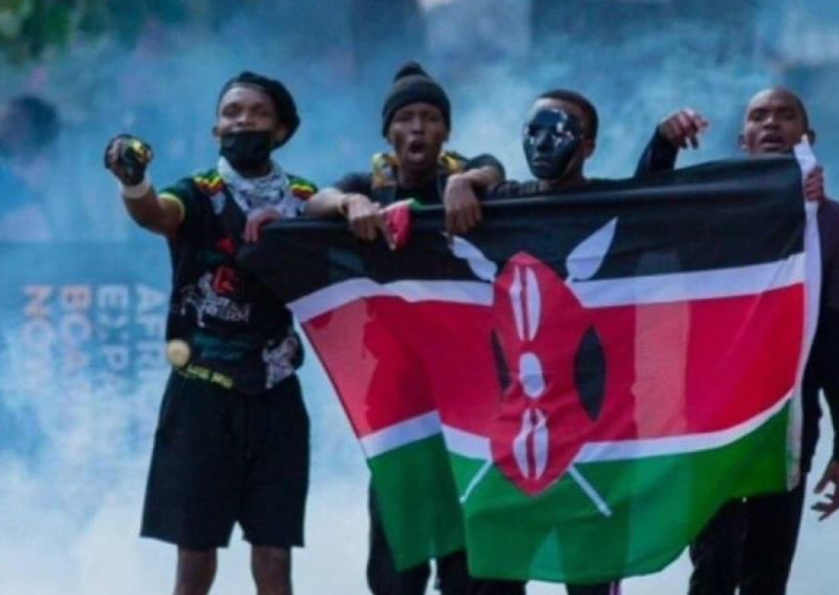Busia Senator and human rights advocate Okiya Omtatah has strongly defended Generation Z’s approach to the anti-government protests that rocked the country in June 2024.
Speaking during the People’s Dialogue Festival at Uhuru Park on March 3, 2025, Omtatah dismissed criticism of the youth-led movement’s ‘partyless and leaderless’ nature, arguing that their demands were focused on accountability rather than power struggles.
The senator emphasized that the movement was not about political ambitions but about pushing the government to work within the law and fulfill its responsibilities to the people.
He pointed out that the youth were not interested in seizing power but wanted an administration that governed transparently and effectively. According to Omtatah, Kenya’s governance system, including political parties, is riddled with mismanagement, making it necessary for young people to take a different approach in their activism.
“Partyless/Leaderless is not a wrong slogan. When the youth went to the streets, they were not fighting for power, they were demanding accountability across the political spectrum. They were not trying to grab power, they wanted the current government to work and deliver following the law. They don’t want to be ruled, instead, they want to be governed. Our agenda is one, everything is being mismanaged including the political parties,” Omtatah stated.
Sen Omtatah: Partyless/Leaderless is not a wrong slogan. When the youth went to the streets, they were not fighting for power, they were demanding accountability across the political spectrum.#FormNiDialogue #PDF2025 #cometubonge @thepdfestival pic.twitter.com/c5k2CRQ7ue
— K24 TV (@K24Tv) March 5, 2025
Leaderless, partyless and tribeless
The protests that erupted in June 2024 were a moment in Kenya’s political history. First sparked by the controversial Finance Bill 2024, which proposed tax hikes despite an already strained economy, the demonstrations saw an overwhelming turnout from Gen Z activists. The youth believed the bill would further increase the cost of living, worsen unemployment, and fuel corruption.
Unlike previous protests in Kenya, which were often backed by political leaders or parties, this movement took on a unique structure. It was leaderless and decentralized, with activists avoiding direct association with any political faction. The decision to remain ‘partyless’ was strategic, preventing co-optation by politicians and reinforcing that the demonstrations were about collective grievances rather than individual agendas.

The movement began on social media, primarily on TikTok, X (formerly Twitter), Facebook, and WhatsApp. Hashtags like #RejectFinanceBill2024 and #OccupyParliament gained traction, fueling massive online engagement that quickly transitioned into street protests. The first major demonstration took place in Nairobi on June 18, 2024, before spreading nationwide by June 20. The widespread participation reflected deep frustration among Kenya’s youth over governance issues.
Digital platforms played a crucial role not only in mobilizing protesters but also in educating the public about the Finance Bill and its potential effects.
Kenya’s political landscape has long been shaped by tribal affiliations, but the Gen Z protests broke away from this norm. The movement united young people across ethnic backgrounds, creating a tribeless identity that focused solely on national issues.